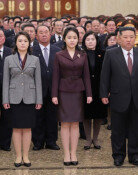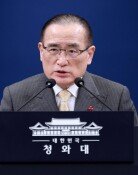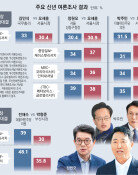Govt OKs 4.3 Trillion Won Medical Plan
Govt OKs 4.3 Trillion Won Medical Plan
Posted December. 28, 2005 03:19,
About 4.3 trillion won will be invested to expand Koreas public medical services over the next four years, which ranks the lowest among members of the Organization for Economic Cooperation and Development (OECD).
The government confirmed the comprehensive public medical care expansion plan based on the above at a Cabinet meeting yesterday.
The ratio of Koreas public medical care as a proportion of the nations total medical services is 18.5 percent, which lags far behind the U.S. (33.2 percent), Japan (35.8 percent), and which is one of the lowest among OECD member countries.
In order to increase the figure to the 27 percent-level by 2009, the government decided to build 31 nursing facilities for dementia, six local cancer centers, three health medical centers for the old, three childrens hospitals and three rehabilitation centers at yesterdays meeting.
In addition, the government plans to increase the number of emergency medical specialists to 814 from the current 344, and to convert 15,000 normal beds to nursing beds in order to prepare for an aging society.
To carry out the above plans, the government will form a public medical care committee under the Ministry of Health and Welfare (MOHW) and create a national medical center council. It will also work with the National Medical Center (NMC), National Cancer Center (NCC), National Rehabilitation Center (NRC), Seoul National Mental Hospital (SNMH), and Seoul National University Hospital (SNUH) and arrange measures against major diseases on the national level.
The government will also enact a law next year to establish and support national university hospitals, let the MOHW control national university hospitals (which are currently under the control of the Ministry of Education and Human Resources Development), and make national university hospitals, including SNUH, play a leading role in caring for the public health over a wide area.
However, SNUH resisted the governments plans, saying that a national university hospital should be committed to educating, studying, and strengthening medical competitiveness. This stance could cause friction with the government.
Hee-Kyung Kim susanna@donga.com







